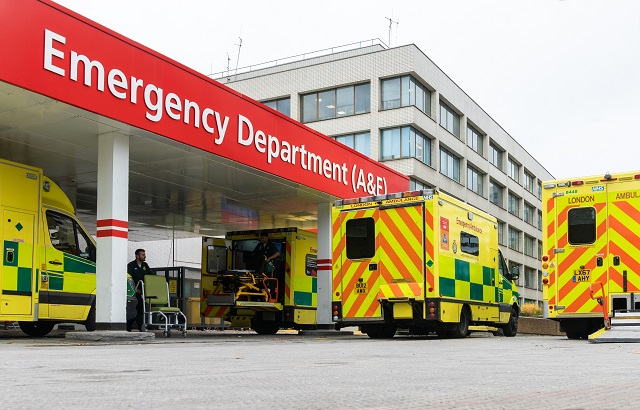

The death rate for patients who experienced what is normally a lower-risk heart attack rose sharply during the peak of the coronavirus (Covid-19) pandemic, according to an analysis of NHS data.

In comparison, the death rate for people who had a more severe heart attack fell.
It also revealed a substantial drop in the number of people who were arriving at hospital with a heart attack. At its lowest point, hospitals were treating just over half the cases they would normally expect to see.
Although the number of people seeking medical help did rebound, they had not returned to their pre-Covid-19 levels by 22 May, when the study period ended.
Despite the pressures on the NHS from Covid-19, the study showed that hospitals were able to maintain their emergency cardiac services in the vast majority of cases and adhere to best-practice clinical guidelines.
The study is the first detailed insight into what happened to heart attack patients as the NHS reorganised services to focus on Covid-19.
Researchers at the University of Leeds analysed admission data for 50,689 patients who had a heart attack and were treated at 99 acute NHS hospitals in England over the 14 months prior to UK lockdown on 23 March, and the first two months of lockdown.
STEMI vs NSTEMI
The analysis looked at two types of heart attack - 17,246 people who had a STEMI heart attack and 33,443 who had a NSTEMI heart attack (total patients: 50,698).
An NSTEMI is the most common form of heart attack and usually happens when there is a partial blockage to one of the blood vessels supplying the heart.
A STEMI heart attack is where there is a complete blockage of one of the blood vessels that takes oxygen to the heart.
The statistical analysis revealed that significantly fewer people were attending hospital with a heart attack. NSTEMI cases were down by 49 percent – and STEMI by 29 percent on what hospitals were expecting to see.
Call 999 without delay
Dr Sonya Babu-Narayan, our Associate Medical Director, said:
"We know that throughout lockdown fewer people were treated for a heart attack, risking death or long-term heart damage.
"If you experience chest pain or discomfort, which may feel like squeezing or heaviness or tightness not necessarily the chest-clutching agony that we see on TV and which may radiate to your jaw, arm, back or stomach, it's important to understand you could be having a heart attack.
"Thanks to decades of research, prompt treatment for your heart attack could save your life, so if you think you are experiencing symptoms call 999 immediately."


